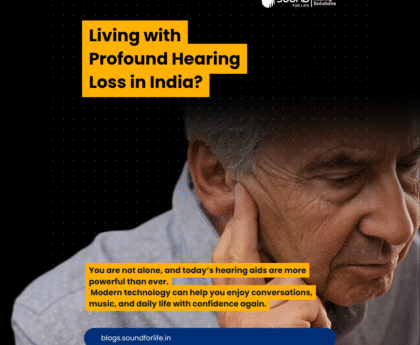Millions of people throughout the world suffer from hearing loss as a result of ageing, loud
noises, or diseases. This often results in feelings of dissatisfaction and loneliness. The good
news is that there are several strategies to maintain and enhance hearing.
To improve your hearing, you may consider using cochlear implants, assistive listening
devices and hearing aids. Possessing better communication skills can also make
conversations easier. To maintain your hearing health, have regular checkups, make certain
lifestyle changes, and protect your ears from loud noises. Small adjustments like lowering
the volume, using earplugs, and being aware of your hearing can add up over time to make
a big difference. You can protect your hearing in the future by taking care of your ears today.
These simple steps can help you stay connected and enjoy clearer communication every
day.
Taking these steps can help you maintain and even improve your ability to hear, keeping you
connected to the world and the people around you.
In this article, we’ll explore ten proven ways to take control of your hearing and stay
connected with the world around you. Whether you’re looking for small changes or advanced
solutions, there’s something for everyone. Don’t let hearing loss hold you back, you have
options! Let’s dive in and discover what works best for you.

1. Get a Professional Hearing Test
Realizing the severity of hearing loss, is the first step towards managing it. You may find out
what kind of hearing loss you have and how much it affects you by having an audiologist
perform a hearing test. Consider it a handbook that helps you determine where you are and
what to do next. Don’t wait too long; early detection can make a big difference in treatment
success.
Hearing tests are painless and usually involve listening to sounds at different pitches and
volumes. The results will help your audiologist recommend the best course of action,
whether it’s hearing aids, lifestyle changes, or further medical evaluation. Remember,
knowledge is power, and understanding your hearing loss is the first step toward managing it
effectively.
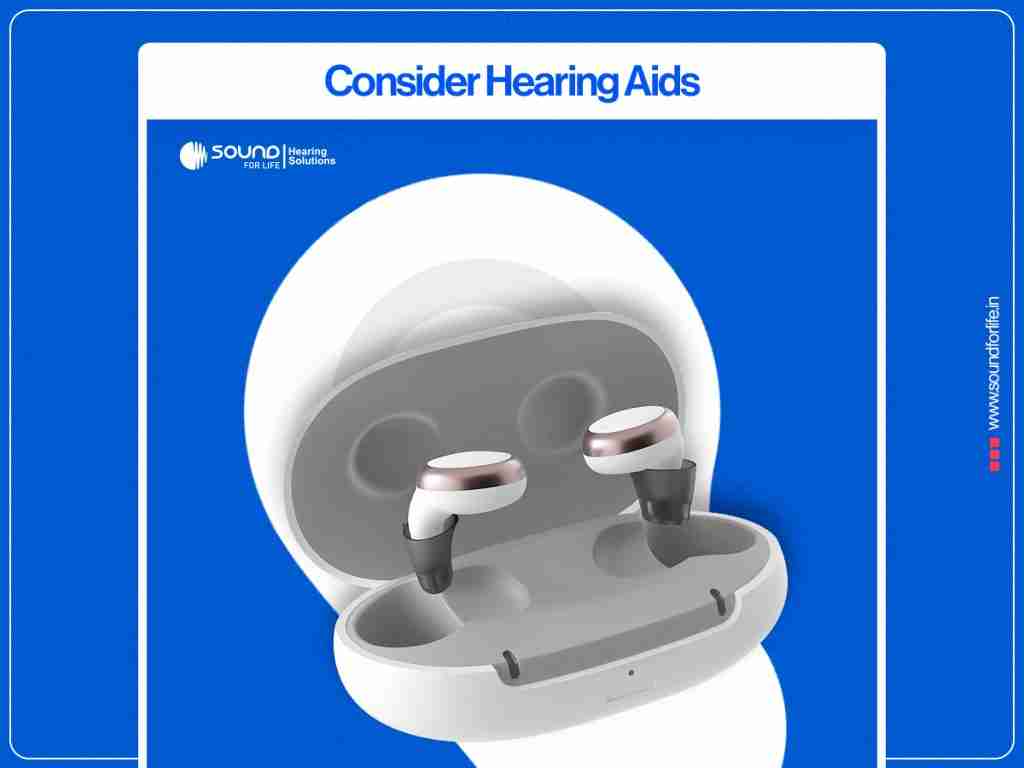
2.Consider Hearing Aids
Hearing aids are a popular and effective way to manage hearing loss. Today’s hearing aids
are small, stylish, and full of smart technology. They help by making sounds clearer,
reducing background noise, and even connecting to your smartphone. If the idea of wearing
a hearing aid feels strange, remember it’s a tiny device that can make a big difference in
your life.
There are many different types of hearing aids to suit different needs and preferences. Some
sit behind the ear, while others fit entirely into the ear canal. An audiologist can help you
choose the ideal one based on your lifestyle according to the findings of your hearing test.
Don’t allow stigma to stop you from using hearing aids; they are a practical and effective way
to improve your hearing and reconnect with the world. With many options available now it’s
easy to choose one that suits you and enhances hearing without being obvious or
unpleasant.
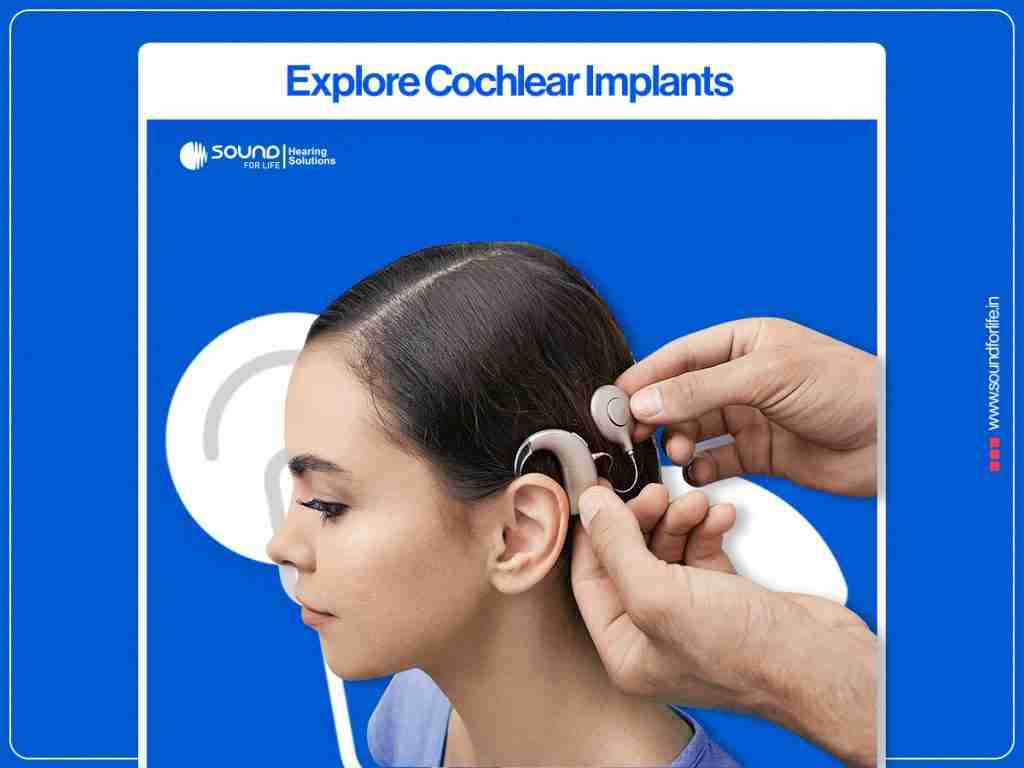
3. Explore Cochlear Implants
For those with profound hearing loss, cochlear implants have the potential to change their
lives. Bypassing damaged areas of the ear, these implants carry impulses straight to the
hearing nerve, as compared to hearing aids that simply increase sound volume.
Many people experience better hearing and communication with cochlear implants. Though
surgery and an adjustment period are needed, the benefits can be life-changing. For those
who struggle with regular hearing aids, these implants offer a chance to reconnect with the
world through sound.
These implants are usually for those who don’t get enough help from regular hearing aids.
The process includes surgery and therapy to help the brain adjust to hearing in a new way.
It’s a big step, but it can make a huge difference. If you think this might help you, consult an
ENT specialist to learn more.
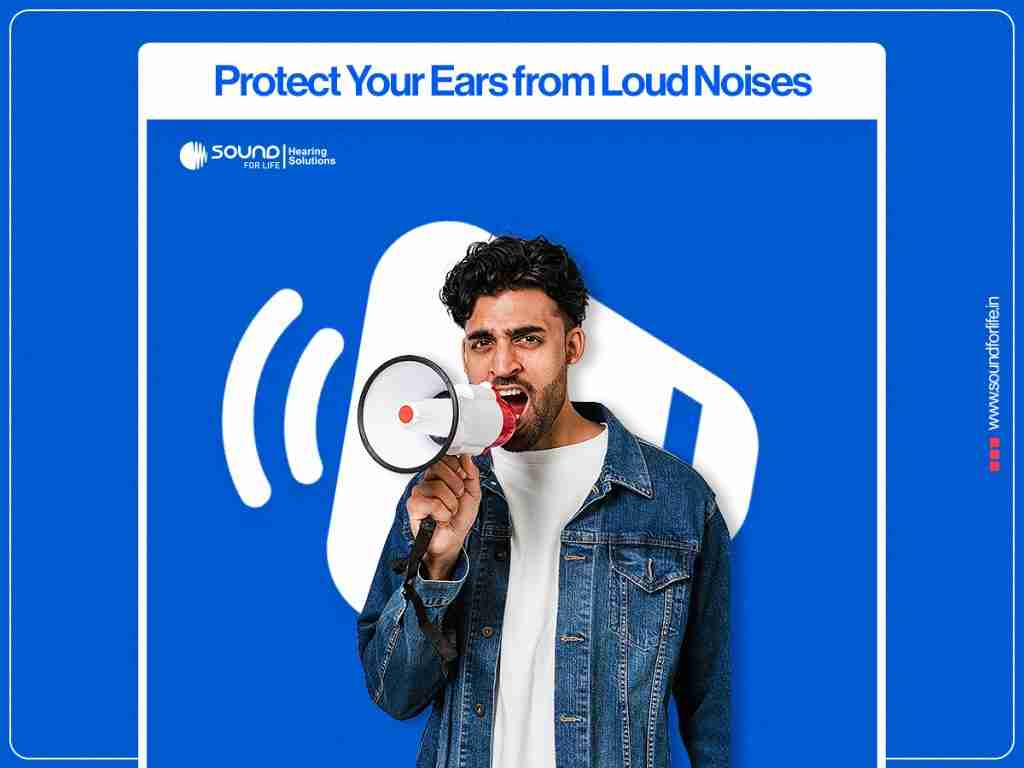
4. Protect Your Ears from Loud Noises
As the saying goes…prevention is always better than cure. If you are frequently exposed to
loud noises, whether at work, concerts, or while using power tools, always wear ear
protection. Simple earplugs or noise-canceling headphones can save your hearing from
further damage. Remember that once hearing is lost, it’s often irreversible, so take care of
your ears now.
Noise-induced hearing loss is one of the most preventable types of hearing loss. Be mindful
of your environment and take steps to reduce your exposure to loud sounds. If you’re unsure
about the noise levels around you, consider using a sound level meter app on your
smartphone. It’s a small effort that can have a big impact on your long-term hearing health.
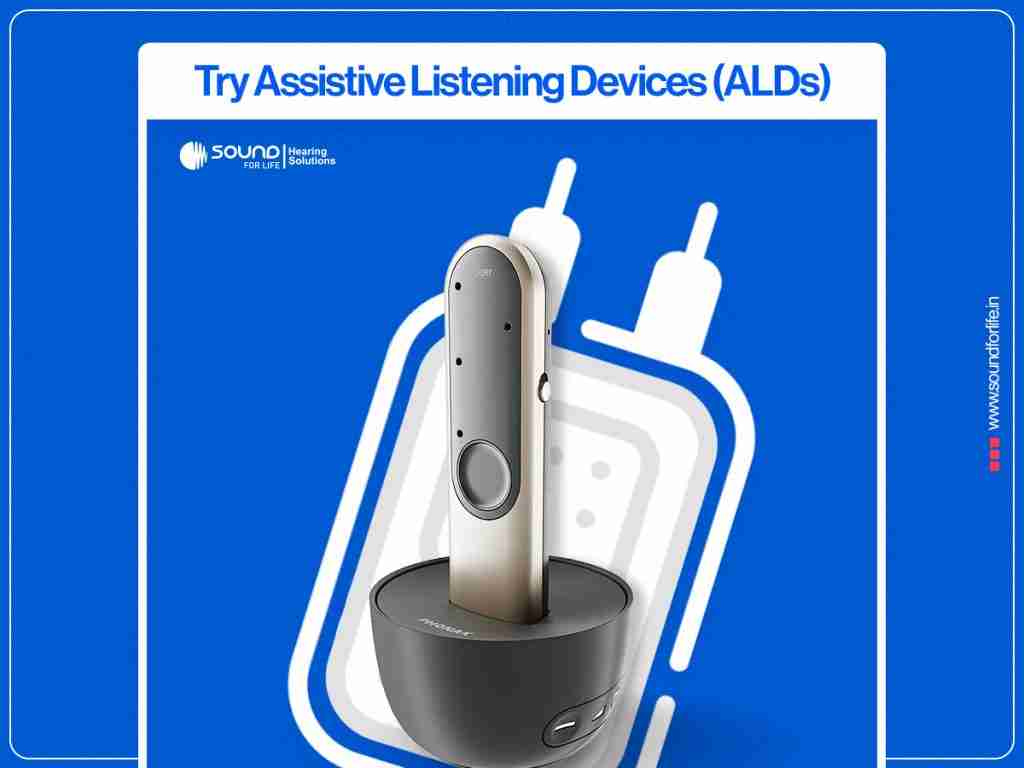
5. Try Assistive Listening Devices (ALDs)
You can hear better in a variety of settings with the use of assistive listening equipment. For
instance, TV amplifiers allow you to watch your favourite shows without straining your ears,
while phone amplifiers improve the clarity of calls. Additionally, there are specialised
gadgets, such as FM systems, that improve hearing in noisy settings, such as meetings or
restaurants.
These tools are designed to improve everyday communication and make life more enjoyable
for people with hearing difficulties. Finding the right device can make a big difference in your
daily life.
ALDs can be used alone or in combination with hearing aids or cochlear implants. They’re
especially helpful in challenging listening situations, such as crowded spaces or large
venues. If you’re struggling to hear in specific scenarios, ask your audiologist about ALDs
that might work for you.
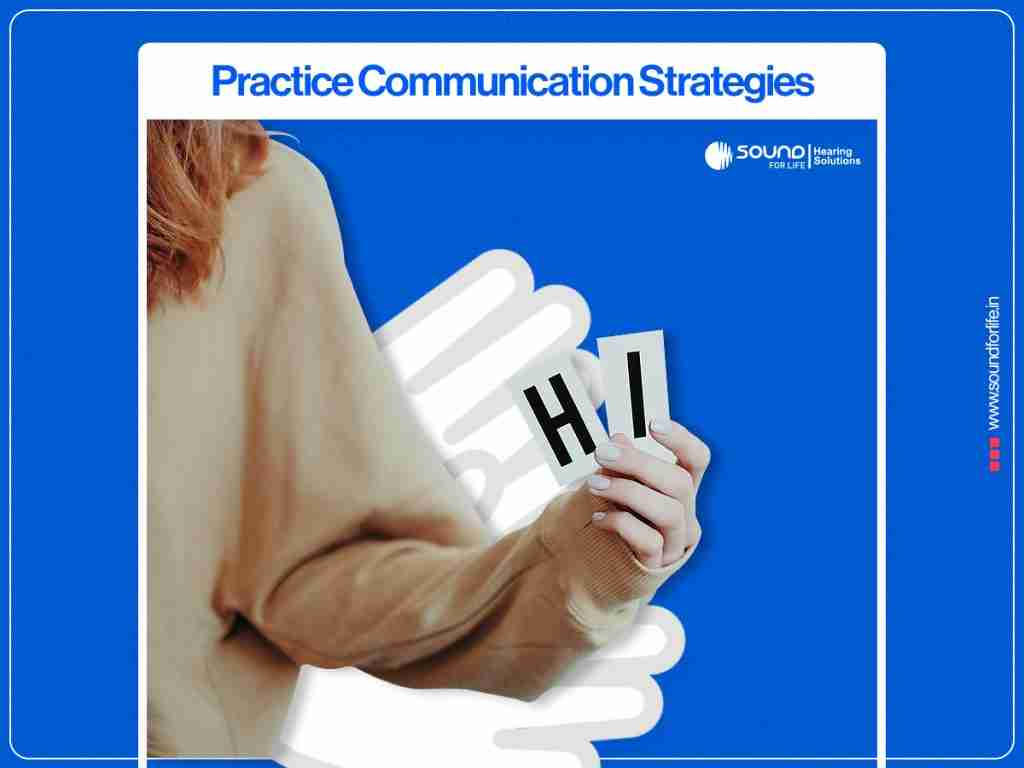
6. Practice Communication Strategies
Hearing loss doesn’t just affect your ears, it can also impact your relationships and social
life. Learning effective communication strategies can make a big difference. For instance,
ask people to face you when they speak, reduce background noise during conversations,
and don’t be afraid to ask for clarification if you miss something. These simple changes can
make conversations improve and more enjoyable.
Another helpful strategy is to use visual cues, such as lip reading or body language, to
supplement your hearing. Let your friends and family know about your hearing loss so they
can support you by speaking clearly and at a moderate pace. Communication is a two-way
street, and small adjustments can go a long way in improving your interactions.
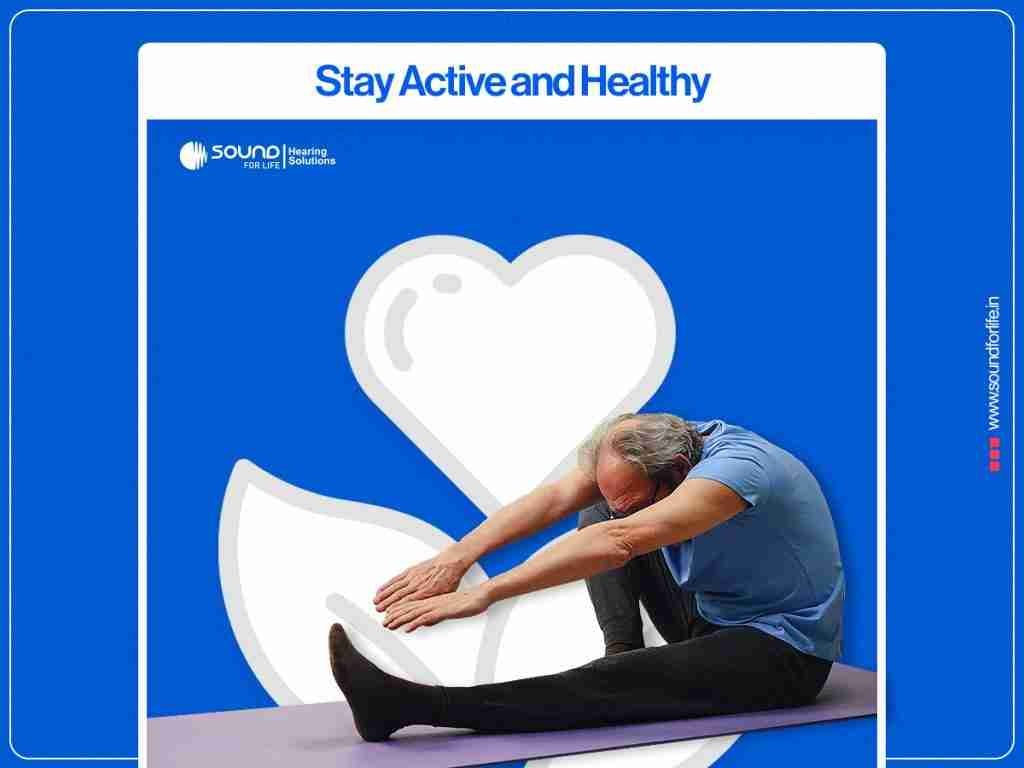
7. Stay Active and Healthy
Unbelievably you may be surprised to learn that your hearing is significantly impacted by
your overall health. Your hearings may be impacted by diseases including diabetes,
hypertension, and stress. Maintaining an active lifestyle, eating healthy food, and taking care
of any health conditions will help preserve your hearing for many years to come.
Additionally, maintaining an active lifestyle enhances blood flow to the ears, which is critical
for maintaining hearing health.
Eating foods rich in omega-3 fatty acids, antioxidants, and vitamins C and E can support ear
health and may help prevent further hearing loss. Reducing alcohol consumption and
quitting smoking are also crucial because they can both eventually harm your hearing.
Following a healthy lifestyle helps not just your ears but your entire body. By making little
changes to your everyday routine, you may improve your general health and preserve your
hearing for many years to come. Keeping your hearing healthy is part of keeping your health
intact!
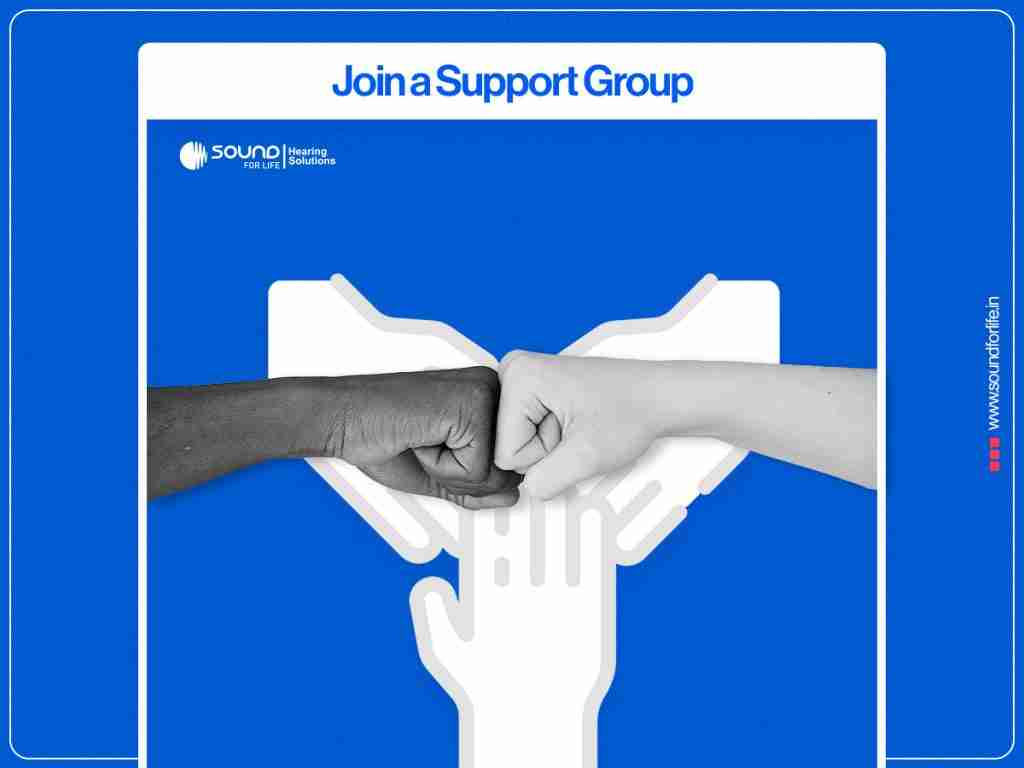
8. Join a Support Group
You’re not alone in your journey, however hearing loss can be stressful and can at times
make you feel alone. Both in-person and online support groups are available for you to
interact with others who share your experiences. These groups offer a secure setting for
experience sharing, practical guidance, and emotional support. Speaking with others who
have comparable difficulties might help you feel less isolated and more inspired. You may
feel more confident and capable of handling your hearing loss if you know that others are
experiencing the same thing.
Talking to people who face similar challenges can make you feel less alone and more
encouraged. Knowing that others are going through the same thing can help you feel more
confident and better able to manage your hearing loss.
It can be really inspiring and supportive to be a member of a group like this. You can also
learn some helpful tips along the way.
Support groups also keep you updated on the latest hearing aids, cochlear implants, and
other treatments. Many organizations, like the Hearing Loss Association of America (HLAA),
offer events, activities, and support services for people with hearing loss. Being part of a
community like this can make a big difference in your journey. It helps you stay informed
about new treatments, feel more confident, and improve your quality of life. Never
underestimate the power of community, connecting with others who understand your
experience can provide support, encouragement, and valuable resources to help you
manage hearing loss more effectively.

9. Consider Lip Reading or Sign Language
If your hearing loss is significant, learning to lip-read or use sign language can open up new
ways to communicate. Lip reading involves watching a person’s mouth movements to
understand speech, while sign language is a visual language that uses hand gestures and
facial expressions.
Sign language and lip reading are valuable skills that can help you communicate better and
connect with others. These abilities make it easier to navigate the world and keep strong
relationships with loved ones, especially if you have hearing loss. They can reduce the
frustration that often comes with not being able to hear clearly. Many communities offer
online resources or classes to help you learn these skills. It’s never too late to start learning
something new—these skills can make a big difference in your ability to communicate and
feel more connected.
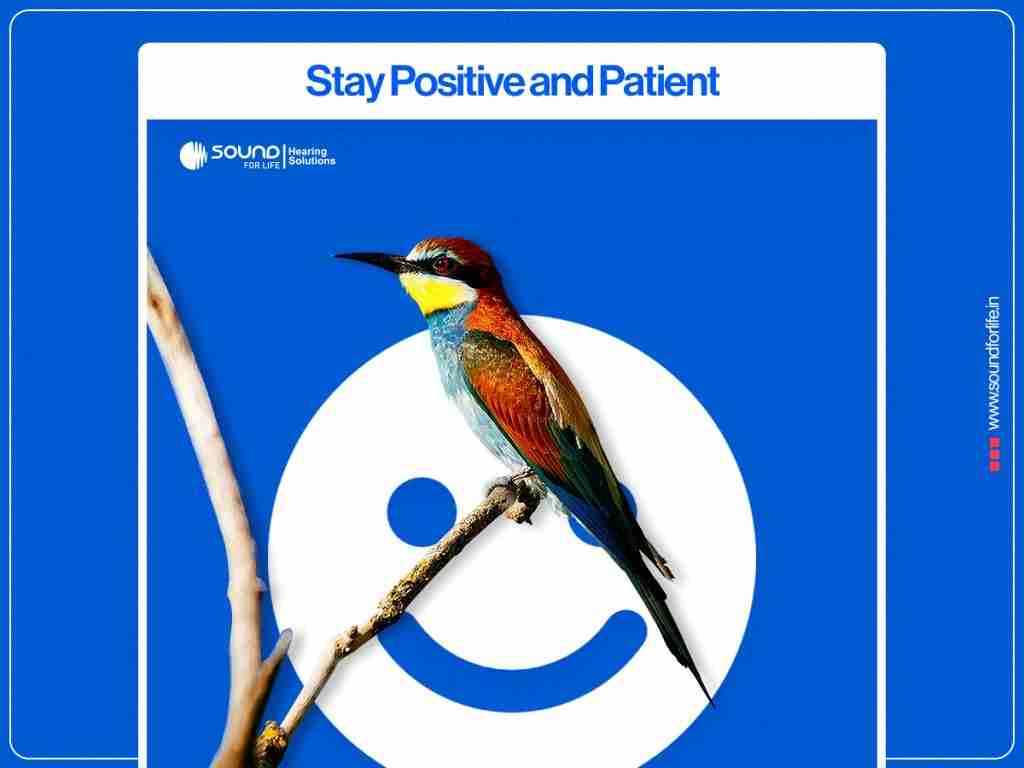
10. Stay Positive and Patient
Managing hearing loss is a process, so it’s okay to take things one step at a time. Be patient
and kind to yourself as you try different solutions. Celebrate small wins, like hearing a bird or
understanding a conversation better. Every little step counts toward progress!
With the right mindset and tools, you can overcome the challenges of hearing loss and live a
fulfilling life.
It’s natural to feel frustrated or discouraged at times, but remember that progress takes time.
Surround yourself with supportive people who encourage you and remind you of your
strengths. Hearing loss is just one part of your life, it doesn’t define you.
Bonus Tip: Regular Check-Ups Are Key
It takes more than a single fix to maintain your hearing function.. Seeing your audiologist on
a regular basis is crucial. They can assess your hearing, make adjustments to your gadgets,
and provide new options thanks to advancements in technology.
If you wear hearing aids, you must get regular examinations to ensure that your hearing
stays as healthy as possible and does not worsen with time.
Think of it as an otoscopic inspection!
If you already have cochlear implants or hearing aids, routine examinations are very crucial.
Over time, certain devices might require changes to make sure they’re operating at their
best. You can keep ahead of any changes or difficulties by continuing to take proactive
measures for your hearing health.
You may still fully enjoy life while experiencing hearing loss. You can deal with it and still take
pleasure in everyday events if you have the correct help and answers. Every action you take
towards improving your hearing, whether it is through the use of hearing aids, ear protection,
or new communication techniques, gets you closer.
You’re not alone in this journey. There are plenty of resources and people ready to support
you professionals, family, friends, and support groups. Don’t hesitate to reach out for
guidance and encouragement. Your hearing health is important, and there are many ways to
stay connected with the world around you.
Please feel free to share this blog post to others if you consider it may be useful.





